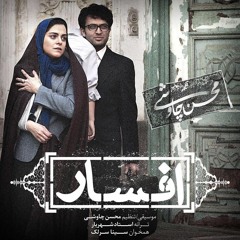

En-Gendering Nationalism: The 'Women Question' in Kurdish Nationalism Discourse of the Late Ottoman Period Janet Klein 25 2.

She is currently conducting SSHRC-funded research on war, diaspora, and learning women political prisoners in the Middle East and war and transnational women’s organizations (Women, War, Diaspora, and Learning: Research Resources: Preface vii Acknowledgements ix Introduction: The solitude of the stateless-Kurdish women at the margins of feminist knowledge Shahrzad Mojab 1 PART I: HISTORICAL PERSPECTIVES 1. She is the editor of Women of A Non States Nation: The Kurds, co-editor of Of Property and Propriety: The Role of Gender and Class in Imperialism and Nationalism, and Violence in the Name of Honour: Theoretical and Political Challenges. Her publications include, among others, articles and book chapters on ‘Islamic Feminism’, feminism and nationalism, adult education and the construction of civil society in the Middle East, women’s NGOs and transnationalism, and diaspora, feminism and neo-liberalism.

Shahrzad's areas of research and teaching are minority women's access to education educational policy studies comparative and international education anti-racism education critical and feminist pedagogy feminism and nationalism gender, state, diaspora and transnationality women, war, militarization and violence women, war and learning and feminism, colonialism and imperialism and cultural relativism as an ideological tool. Shahrzad Mojab is the Director of the Women and Gender Studies Institute at the University of Toronto and Professor at the Department of Adult Education and Counselling Psychology, the Ontario Institute for Studies in Education (OISE/UT). The editor's introductory chapter is the first survey of Kurdish women's studies, and provides a critical overview of the state of research, and examines theoretical and methodological issues as well as the politics and political economy of research on the women of a non-state nation. Many of the topics in the book have never been addressed in Kurdish studies, for instance, gender and self-determination, women and Sufism, feminism and nationalism, and women and health choices.

At the same time, it provides extensive evidence and analysis, which questions the widely accepted claim that Kurdish women enjoy more freedom compared with their Arab, Turkish and Persian sisters. The diversity of Kurdish women's lives and experiences, from their membership in the parliament to military activism to mothering is documented. The book introduces a gender dimension into the growing literature on Kurdish nationalism. For the first time, the contributors apply gender critique to the understanding of the nationalism of the world's largest non-state nation, the Kurds. The contributors to this book examine aspects of Kurdish women's lives in light of current theoretical debates. While some progress has recently been made in theorizing the relationships, there is a dearth of empirical studies of the topic. The relationship between nationalism and feminism is quite complex and conflictual. While a considerable volume of the literature on the Kurds deals with their nationalism, the place of women in this nationalist movement has rarely been studied. This book is the first scholarly work on feminism and nationalism in the context of one of the most persistent nationalist movements of the twentieth century-Kurdish nationalism.


 0 kommentar(er)
0 kommentar(er)
